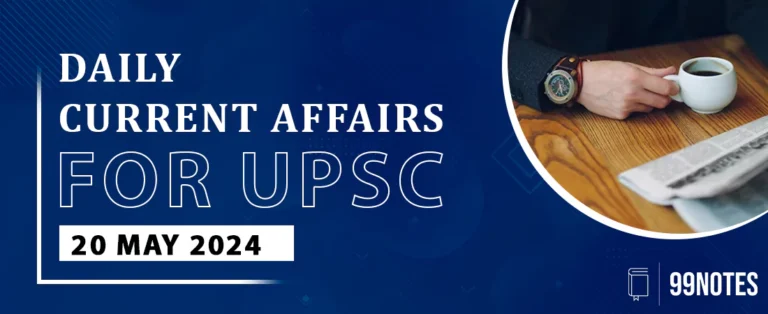11 October 2023 : Daily Current Affair
Daily Current Affairs
11-October-2023
1. SC sets Oct. 31 for hearing electoral bonds case.
Topic: GS2 – Indian polity
Context:
- The Supreme Court has scheduled a hearing for October 31 to address multiple petitions challenging the electoral bonds scheme.
Additional information on this news:
- Chief Justice of India D.Y. Chandrachud expressed the court’s commitment to decide the case.
- The focus of the hearing will primarily be on two issues related to the electoral bonds scheme: the legalisation of anonymous political donations and the potential violation of citizens’ right to information about political party funding.
- These issues raise concerns about the violation of constitutional articles, including Articles 19, 14, and 21.
- The electoral bonds scheme was passed as a Money Bill, bypassing the Rajya Sabha, and concerns exist about the ability of a seven-judge Bench to deliver a judgment before the 2024 Lok Sabha election.
- The petitioner asserts that the scheme enables unlimited political donations and allows for donor anonymity, making political funding less transparent and raising concerns about potential corruption.
- The court is considering whether tax redemption by donors through the purchase of electoral bonds may impact the scheme’s classification as a Money Bill.
2. The impact of Claudia Goldin’s work
Topic: GS3 – economy
Context:
- Professor Claudia Goldin of Harvard University received the Sveriges Riksbank Prize in Economic Sciences for her pioneering research on women’s labor market outcomes.
- Her work provides a comprehensive historical account of women’s earnings and labor market participation over two centuries in the United States.
What about Claudia Goldin’s work:
- Goldin’s research reveals that female participation in the labor force did not exhibit a linear upward trend but rather a U-shaped curve, influenced by various factors.
- Historical inaccuracies in assessing female labor force participation were corrected by her research, showing that women’s employment rates were higher than previously recorded.
- The transition from agrarian to industrial society led to a decrease in married women’s participation in the labor force, but the growth of the service sector in the early 20th century contributed to an upward trajectory.
- Factors affecting female labor force participation include societal expectations, legislation, technological progress, and education.
- Expectations about women’s roles and family choices were pivotal, with women being expected to exit the labor force upon marriage in the early 20th century.
- The introduction of birth control pills allowed women to plan their careers better, but the earnings gap between men and women persisted.
- Pay discrimination increased with the growth of the services sector, particularly when employers preferred employees with “long and uninterrupted careers.”
- Goldin’s books, including “Understanding the Gender Gap” (1990) and “Career & Family” (2021), provide detailed insights into the gender wage gap, educational trends, and the challenges women face in balancing careers and family.
- Her research underscores the importance of understanding the complexities of women’s labor market experiences and the factors that shape them.
3. Trade and security ties with India gathering pace: Australian Speaker
Topic: GS2 –International relations
Context:
- Australia’s Speaker of the House of Representatives, Milton Dick, highlighted the strengthening relations between India and Australia, describing them as “rich and vibrant democracies.”
More about India Australia relations:
- Australia is resetting its relationship with China, but it views its relationship with India as unique, with dimensions encompassing trade, security, and people-to-people ties.
- Security cooperation between India and Australia is intensifying, including agreements, operations, defense exercises, and training opportunities. Reciprocal maritime patrol aircraft deployments have occurred in 2022 and 2023.
Economic relations:
- Trade is a robust aspect of India-Australia ties, with India ranking as Australia’s sixth top two-way goods and services trading partner, amounting to around $46.5 billion in 2022. India is Australia’s fourth-largest exports market and 10th largest import source.
- Both countries collaborate in various regional and multilateral forums, such as the Quad, G-20, East Asia Summit, ASEAN regional forum, and the Indian Ocean Rim Association, enhancing strategic and economic dialogues in the Indo-Pacific region.
- Regarding India’s stance on the Ukraine war, which differs from Australia’s, Milton Dick emphasized Australia’s respect for India’s decisions and noted that Australia has taken a clear position on the matter while recognizing the sovereignty of each country to make its own determinations.
Question: Discuss the evolving strategic cooperation and trade relations between India and Australia and their significance in the context of the Indo-Pacific region.
4. First test flight of Mission Gaganyaan scheduled on October 21.
Topic: GS2 – Science and technology
Context:
- ISRO is preparing for the Gaganyaan mission, India’s first manned space mission.
- The first of multiple test flights is scheduled for October 21 at the Satish Dhawan Space Centre in Sriharikota.
Additional information on this news:
- The test will focus on the ‘crew module’ where Indian astronauts will be housed.
- The test involves launching the module into space and recovering it after touchdown in the Bay of Bengal.
- It will also examine the ‘crew escape’ system to ensure astronaut safety during ascent.
- The test vehicle will simulate an abort condition during the ascent trajectory, culminating in a safe sea landing.
- The success of this test is crucial for the upcoming unmanned “Gaganyaan” mission and the eventual manned mission to low earth orbit.
- A test flight with the “Vyommitra” female robot astronaut is planned for next year.
5. What is Hamas, the Palestinian militant group?
Topic: GS2 – Science and technology
Origins of Hamas:
- Hamas has roots in the Muslim Brotherhood, focusing on reorienting Muslim society.
- Established by Sheikh Ahmed Yassin in 1973 with Israeli recognition, enabling fund-raising and educational institutions.
The Rise of Hamas:
- Founded in 1987 during the first intifada, seizing the opportunity to enter the struggle against the Israeli occupation.
- Launched its first attack in 1989, and its resistance became violent, with suicide attacks in the 1990s.
Hamas’s Evolution:
- Charter of 1988 featured anti-Semitic rhetoric, calling for jihad and rejecting peace initiatives.
- Survived Israeli assassinations, including the killings of Sheikh Yassin and Abdel Aziz al-Rantisi in 2004.
- Gained popularity in Gaza, leading to its election victory in 2006.
Political Changes:
- Moderated its outlook, offering a hudna (lasting ceasefire) in exchange for a return to the 1967 borders.
- Adopted a new charter in 2017, dropping anti-Semitic remarks and distinguishing between the Jewish people and Zionism.
- Recent attacks suggest a return to more violent tactics.
Current Conflict:
- Israeli Prime Minister Benjamin Netanyahu vows to destroy the enemy, but must consider Hamas’s role in Palestinian politics.
- A solution to the Israel-Palestine problem may require taking Hamas into consideration.
- Hamas has survived Israeli attacks, presenting a significant challenge in the current conflict.
6. Impact on Israel-Saudi deal
Topic: GS2-IR
Context:
- Tensions between Israel and Hamas could disrupt on-going negotiations, mediated by the United States, for the normalization of ties between Israel and Saudi Arabia.
What is the potential deal?
- Israel will be acknowledged by Saudi Arabia for the first time since its founding in 1948. In addition to finding a solution to the Palestinian issue, Riyadh now demands security assurances from the US, notably defense against Iran, the US’s main foe.
- The agreement also includes US clearance for the transfer of advanced weaponry to the monarchy and assistance for a Saudi civilian nuclear program.
- Israel’s advanced technology will aid Riyadh in expanding its economy.
What does Israel stand to gain?
- An official connection with the wealthiest and most powerful Arab nations will enhance Israel’s economy and give it legitimacy in the largely Muslim region.
What’s in it for US?
- The US is concerned about the rise of Chinese influence in the region and is hoping that by providing Saudi Arabia with security guarantees, Beijing would be deterred from using its influence-peddling skills to draw Riyadh and Tehran closer together.
- In April, Beijing exercised this skill by successfully negotiating a detente between Saudi and Iran.
- Additionally, the Americans seek to ease tense relations with Saudi Arabia, with whom they have recently had a number of disagreements, particularly after the murder of US journalist Jamal Khashoggi by Saudi agents.
What about Palestinians?
- It’s hard to predict what they might receive.
- Saudi Arabia has stated that it is still completely committed to the 2002 Arab Peace Initiative, in which Arab countries promised Israel normalized relations in exchange for an agreement on Palestinian statehood and a complete Israeli withdrawal from 1967-administered land.
- However, the kingdom’s authorities have signaled that a settlement is conceivable even if it does not provide Palestinians their own state.
What is the likely impact on the deal?
- The war has delayed the deal’s completion date.
- Additionally, it has triggered sympathy for the Palestinians across the larger Arab community.
- The Saudi foreign ministry placed the blame on Israel, claiming that it had repeatedly warned “of the dangers of the situation exploding as a result of the continued occupation, the deprivation of the Palestinian people and their legitimate rights, and the repetition of systemic provocation against its sanctities.”
7. Climate change risks: Cloud over India chip dreams, Moody’s flags flood fears
Topic: GS3-Environment
Context:
- As India moves to build a domestic semiconductor manufacturing ecosystem to reduce its reliance on imports, the country’s ambition could be headed for troubled waters.
- According to Moody’s Risk Management solutions, it faces an overall doubling in the risk from flooding, as a consequence of climate change, in the next three decades or so.
Details of the report:
- According to Moody’s Risk Management Solutions, by 2050, the costs of flooding are expected to rise by around 30 per cent, from water stress by 35 per cent, sea level rise by 60 percent, and heat stress by 150 per cent under a moderate climate change scenario.
- With India also starting to initiate policies favouring greater self-sufficiency in semiconductors, it also faces an overall doubling in the risk from flooding by mid-century.
- Taiwan, which is home to over 90 percent of the most advanced semiconductor manufacturing capacity, could see chip plants’ costs related to climate risks rise substantially over the next 20-30 years.
Importance of semiconductors:
- Semiconductors are arguably among the most important commodities in the global market right now, with use in a various sectors starting from computers to cars, and aircraft to railways.
- Any break in supply will result in other production lines, such as cars and computers, grinding to a halt.
- India has identified chip manufacturing as a key-driver for future economic growth, and has sanctioned a $2.75 billion packaging plant currently being developed by Micron Technology.
8. SC will hear pleas against electoral bonds on Oct 31
Topic: GS2-Govt policies
Context:
- THE SUPREME Court decided to hear petitions challenging the electoral bond scheme on October31.
- The petitioners have alleged that the scheme promotes corruption by enabling anonymity in donations made to political parties.
About Electoral Bonds:
- The 2017 Finance Bill included the introduction of the electoral bonds.
- In January 2018, the Union Government announced the comprehensive rules for the Electoral Bonds Scheme with the goal of purging the nation’s political fundraising system.
- The electoral bond is both an interest-free banking instrument and a bearer instrument like a promissory note.
- A person who is an Indian citizen or who has a place of business in India may purchase electoral bonds.
- Electoral bonds will be issued or purchased from the designated State Bank of India (SBI) branches in multiples of Rs 1,000 for any amount.
- The lifespan of electoral bonds is 15 days.
- A minimum of 1% of voters in the most recent general election for the House of the People or the State’s Legislative Assembly, as well as political parties registered under Section 29A of the Representation of the People Act, 1951, qualify for electoral bonds.
- Political contributors’ and receiving parties’ personal information is safeguarded by electoral bonds.
Arguments in favour of Electoral Bonds:
- It encourages disclosure of the sources of political parties’ funding and donations.
- It is a crucial “electoral reform” in the direction of a “cashless-digital economy”.
- It is a tool for getting rid of black money from political donations.
Arguments against electoral bonds:
- Citizens won’t be able to find out who is giving how much money to which political party, and the bonds strengthen the anonymity of political donations.
- Encouraging fraud and a lack of transparency in all political parties’ finances.
- The electoral bonds program has made it possible for corporations to anonymously fund political parties and give unrestricted corporate donations, endangering Indian democracy.
For Enquiry

11 October 2023 : Daily Current Affair

11 October 2023 : The Hindu Editorial Notes PDF

YOJANA SUMMARY (JUNE 2023)

June Kurukshetra – Water Conservation

Yojana Magazine: July 2023

Kurukshetra July 2023: Summary
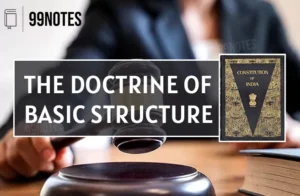
The Doctrine of Basic Structure
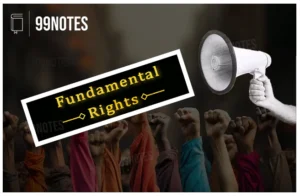
Fundamental Rights
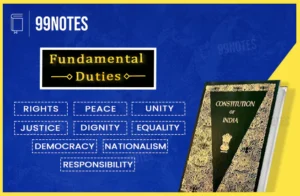
Fundamental Duties
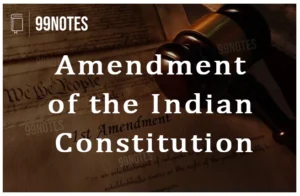
Amendment of the Indian Constitution
Daily Current Affairs 11 October 2023 : Daily Current Affair Daily Current Affairs
11-October-2023
1. SC sets Oct. 31 for hearing electoral bonds case.
Topic: GS2…
October 2023 The Hindu 11 October 2023 : The Hindu Editorial Notes PDF The Hindu Editorial
11-October-2023
1. Women want change, society needs change
Topic: GS1, GS3 –…
Yojana Summary YOJANA SUMMARY (JUNE 2023) INDIA-Gifting Holistic Well-Being to The World
DO YOU KNOW?
“This word is LiFE, which means ‘Lifestyle…
kurukshetra summary June Kurukshetra – Water Conservation During the Amrit Kaal, India is looking towards water as the future. June Kurukshetra addresses the issue…
Yojana Summary Yojana Magazine: July 2023 Chapter 1: Sahakar Se Samruddhi.
Ministry of Cooperation (MoC) for Prosperity and Progress:
Establishment…
kurukshetra summary Kurukshetra July 2023: Summary Chapter 1: Technologies for Sustainable Agriculture Development.
Introduction:
Conventional Indian agricultural…
Polity The Doctrine of Basic Structure How comprehensively can Parliament amend the Constitution? Can it change the very nature of the Constitution?…
Polity Fundamental Rights “Rights are claims of an individual necessary to ensure one’s happiness, without compromising the happiness…
Polity Fundamental Duties The idea of fundamental duty refers to a sense of moral obligations and responsibilities that an individual…
Polity Amendment of the Indian Constitution “While we want this Constitution to be as solid and permanent as we can make it, there is no permanence…


